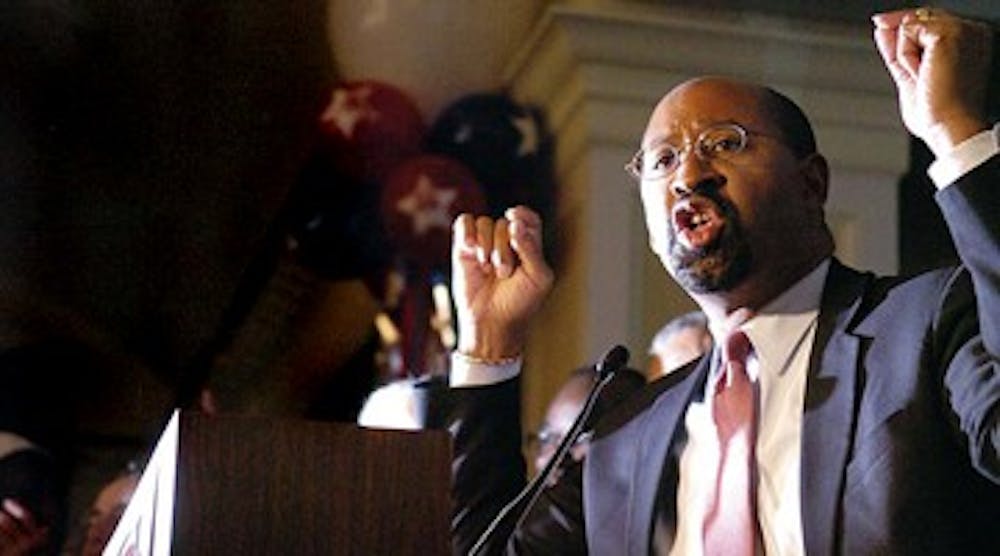
Winning the election may have been the easy part.
Michael Nutter was victorious in the mayor's race Tuesday by a record-setting 4-1 margin, but experts say that within months of his January inauguration, Nutter will have to face a looming pension crisis, rising crime rates and union-contract negotiations, among other problems.
"His honeymoon's over," said political analyst and St. Joseph's University history professor Randall Miller.
Nutter has "been the presumptive mayor for months now, and he's built up a lot of expectations and hope for change," Miller said.
Possible priorities for the Nutter administration could include a series of well-publicized crime-fighting efforts or widespread zoning reform to attract developers and jobs to Philadelphia, said Kevin Feeley, who served as an advisor to then-mayor Ed Rendell.
Nutter steps in to the city's top post following the maligned administration of current Mayor John Street, and given Nutter's popularity, Feeley said voters will give him time to enact his policies, as long as he clearly articulates his mission.
"When Rendell was mayor, we told people that there was going to be a lot of short-term pain for long-term gain," he said. "And people gave Rendell the better part of two years to make those changes.
"Nutter's doing the same thing. He connects very well with voters, and Philadelphia is going to give him a fair opportunity."
A former councilman himself, the mayor-elect has also signaled his willingness to work with the City Council in addressing crime problems. Most incumbent council members kept their seats in Tuesday's election, with the possible exception of Republican councilman Jack Kelly, who trailed challenger David Oh by a few dozen votes with absentee ballots still yet to be counted.
On the state level, a power shift in Pennsylvania's Supreme Court as a result of Tuesday's elections could have wide-ranging implications for Nutter's policies, and for Philadelphia.
Democratic nominees and former Superior court judges Seamus McCaffery and Debra Todd beat out two Republican candidates to win the two open seats on the State Supreme Court, giving the Democrats a one-seat majority on the seven-person court.
The razor-thin Democratic majority could thus shift the court's judicial philosophy slightly to the left on the range of issues the Court has final say on, from campaign-finance reforms to gambling and gaming ordinances.
"It's a real frustration that judicial candidates sometimes get ignored," said Ellen Kaplan, policy director for the Committee of Seventy, a nonpartisan group for clean elections. "These judges will make decisions that affect every aspect of people's lives."
The Supreme Court results could also influence the redistricting process that occurs every 10 years: The Court plays a deciding role in helping carve out legislative districts based on the U.S. Census.
"The last time this happened, the balance of power in the courts was Republican," Pennsylvania Democratic Party spokesman Abe Amoros said in an interview last month.
Some Democratic officials feared that low turnout in Philadelphia would pose a problem for the statewide judicial elections, but McCaffrey and Todd were able to win despite only 28 percent of registered voters coming to the polls, the lowest total in a non-incumbent mayoral race since 1951.
The Daily Pennsylvanian is an independent, student-run newspaper. Please consider making a donation to support the coverage that shapes the University. Your generosity ensures a future of strong journalism at Penn.
DonatePlease note All comments are eligible for publication in The Daily Pennsylvanian.





